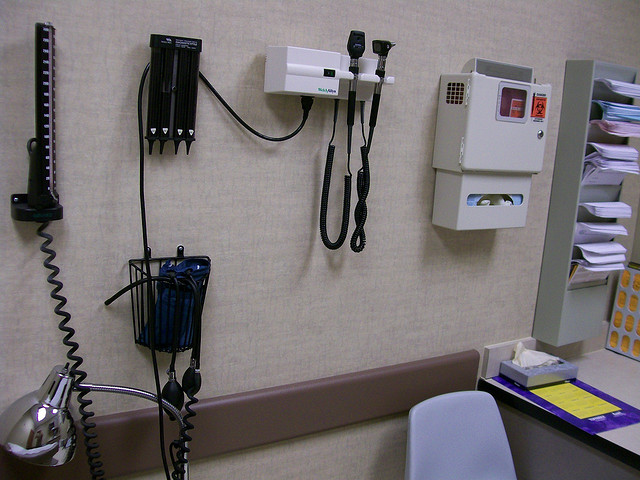If the unknown triggers anxiety, then a trip to the audiologist can be stressful. While virtually all of us have experience with the family doctor and the town dentist, the trip to the hearing specialist might be a first.
It certainly would be nice to have someone make clear the process before you start, wouldn’t it? Well, continue reading, because as you’ll discover, the process of having your hearing evaluated is almost always simple, comfortable, and pain-free — with parts that can actually be fun.
So here’s how it will go:
Just after you arrive at the office, you will check in with a staff member at the front desk who will hand you a few forms to complete. And yes, we do encourage you to bring a companion (a loved one) with you when you come to this appointment. Why? Your audiologist may have some very helpful communication tips for both of you! Shortly after filling out the forms, your audiologist or hearing specialist will escort you into a room to get started with the hearing exam, which is composed of four parts:
Part 1: Case History

The hearing specialist will begin the process by getting to know you, your medical-related history, your hearing loss symptoms, and most importantly, your listening lifestyle. Preparing for this step is important, because this is where you get to relay to the hearing specialist the details of your hearing loss, what you would like from treatment, and your specialized hearing needs.
This portion is all about you: what do you want to achieve with better hearing? What are the most important places or activities where you wish you could hear better than you do now? Do you wish to play a music instrument again? Do you want to be more involved in work meetings? Do you want to be more active at social gatherings? The more you can convey to your hearing specialist the better.
Next comes the testing.
Part 2: Otoscopy
The initial diagnostic test to be performed is termed an otoscopy. An otoscope is used to visually assess the ear canal and eardrum to find if your hearing loss is associated with infections, earwax buildup, or blockages. If the cause of your hearing loss is something as straightforward as earwax buildup, you could most likely start hearing better within a few minutes simply from expert earwax removal.
Part 3: Audiometry
Audiometry consists of a group of tests that are completed in a soundproof room. These tests are collectively known as audiometry and will evaluate your hearing range and sensitivity. Audiometry is the best means to quantify different types of hearing loss–conductive, sensorineural, or a combination of sensorineural/conductive hearing losses often called mixed hearing loss.
With the use of an audiometer, the hearing specialist will be ready to identify:
- Which frequencies you can hear comfortably and which you have a difficult time with.
- The minimal decibel levels, at different frequencies, at which you perceive sound.
- The precise calculations associated with your hearing loss (as captured on an audiogram).
- Your ability to understand speech, with or without background noise.
- Your ability to understand speech at conversational volume, with our without background noise.
The test on its own, from your standpoint, will be comfortable and uncomplicated. You will be presented with sounds and speech through headsets and will be instructed to specify when you can hear the sounds by pushing a control or lifting your hand.
Reviewing results and planning treatment
Right after the testing is complete, your audiologist will analyze your results and immediately share your results with you. If your hearing loss necessitates medical or surgical treatment (due to infections or middle-ear-bone problems, for example), your hearing specialist can make the applicable referral.
If your hearing loss can reap benefits from assistive listening devices or hearing aids, your hearing specialist will collaborate with you to choose the best solution for you, your budget, your lifestyle, and your aesthetic considerations.
Pretty simple for a lifetime of better hearing, isn’t it?
